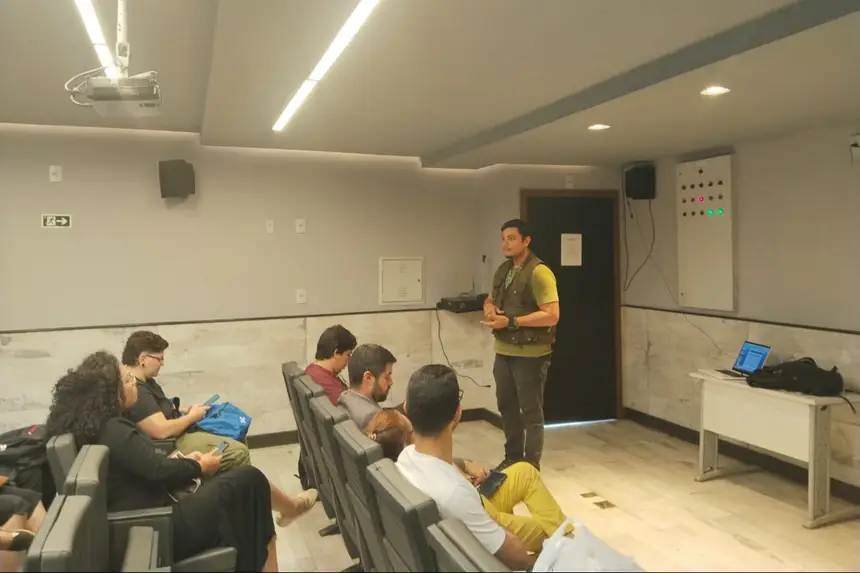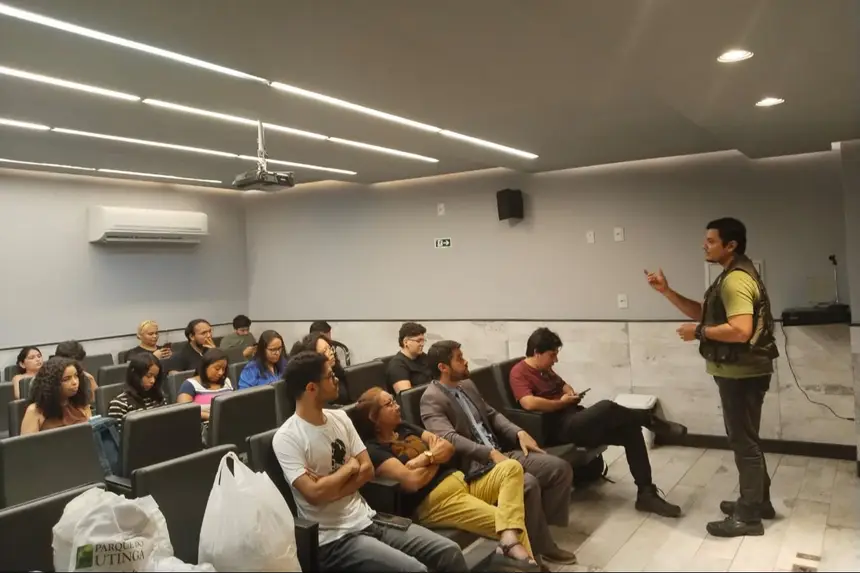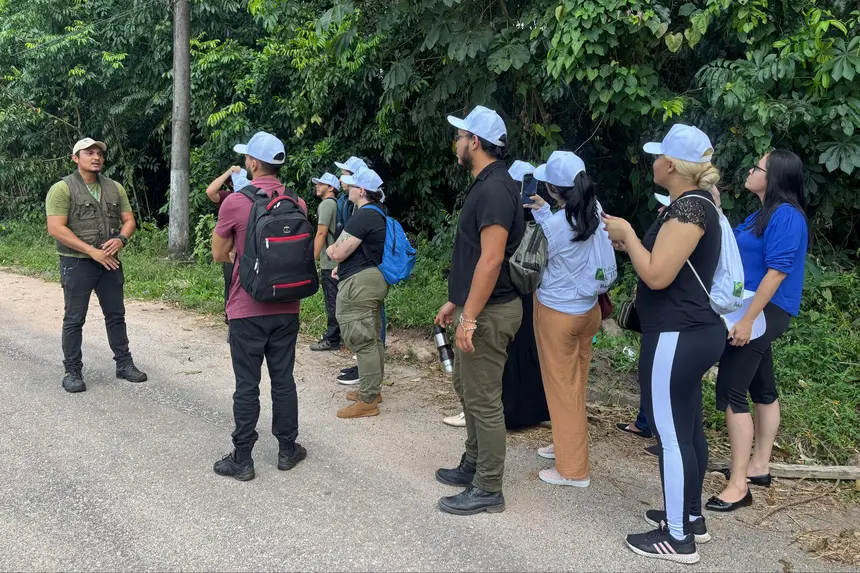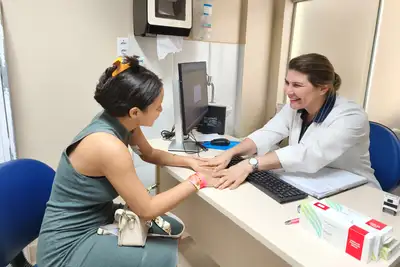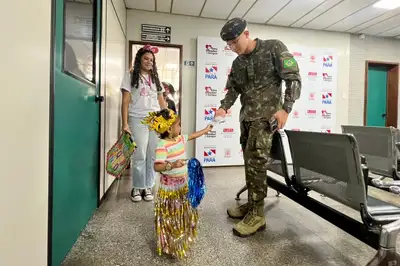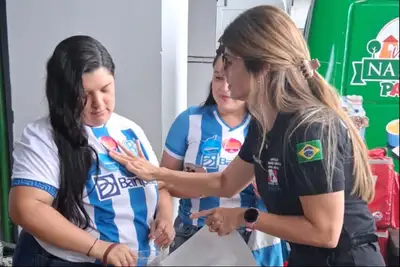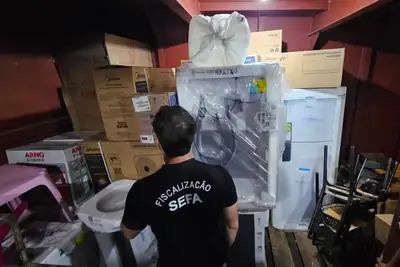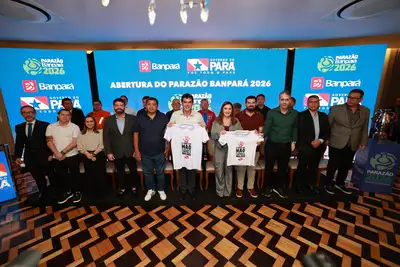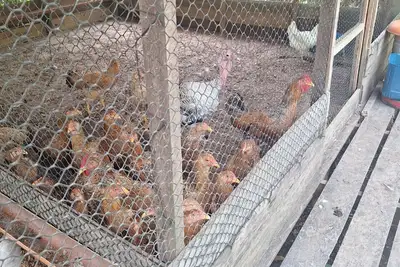Volunteers of the Utinga State Park receive kits and begin their journey of socio-environmental learning
The initiative reinforces the Institute's commitment to providing adequate conditions for volunteers to perform their duties safely, comfortably, and with institutional identity
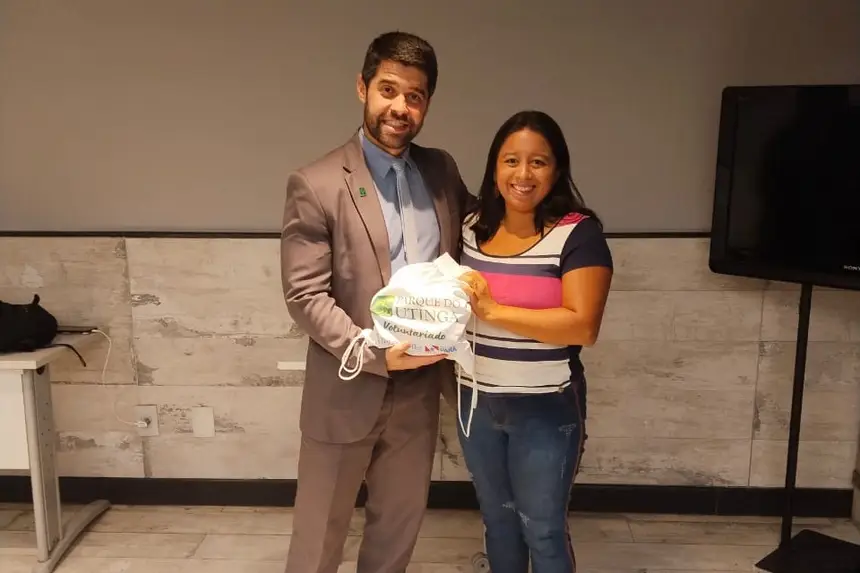
The first participants of the Utinga State Park Volunteer Program, in Belém, received hydration and identification kits from the Institute of Forest Development and Biodiversity of Pará (Ideflor-Bio) this Thursday (25). The event was led by the Institute's technical advisor, Thiago Valente, who represented the president of the agency, Nilson Pinto, and was also attended by the manager of the Administrative Region of Belém, Júlio Meyer.
Each kit delivered to the volunteers consists of a UV protection shirt, a reusable cup, a backpack, and a hat, items that will support them during activities within the conservation unit. Additionally, a vest and identification badge will be provided to ensure the official identification of each participant. The initiative reinforces the Institute's commitment to providing adequate conditions for volunteers to perform their duties safely, comfortably, and with institutional identity.
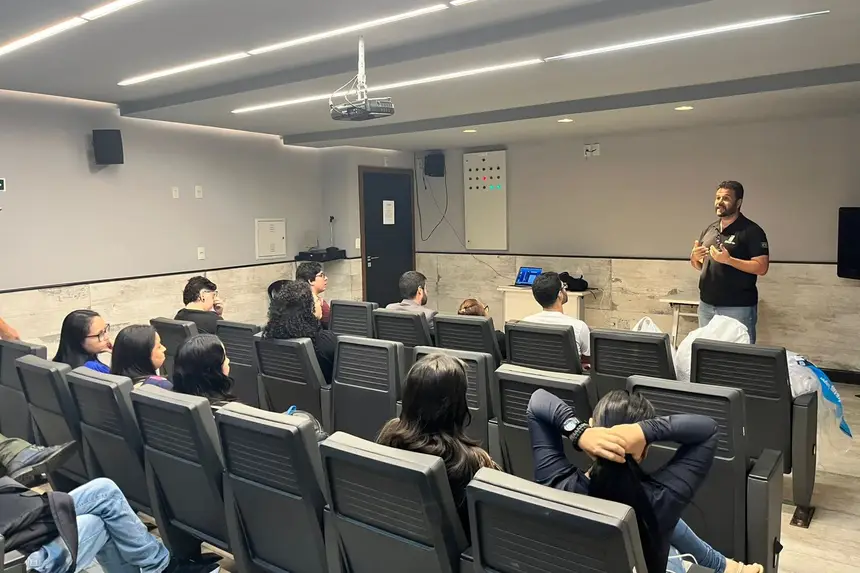
The Volunteer Program primarily focuses on environmental education and serving the visiting public of the Park, especially students from public schools. Throughout the next year, participants will conduct awareness activities about the importance of Amazon biodiversity, combining academic knowledge and educational practices for environmental conservation. The project seeks to integrate various fields of study, such as Biology, Tourism, Pedagogy, and Natural Sciences.
Opportunity - During the ceremony, Thiago Valente emphasized that community participation is essential to strengthen the management of the Institute's conservation units. "Volunteers are key players in this process because they convey the message of preservation directly to visitors. This program represents a space for learning, exchanging knowledge, and collective commitment to the environment," stated the technical advisor of Ideflor-Bio.
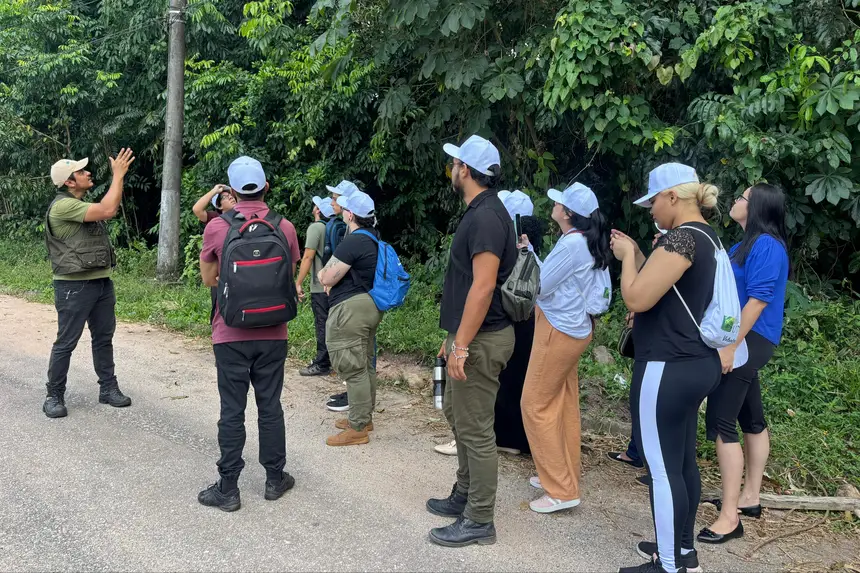
Among those selected for the first edition of the program is Sophia Borges, a university student who sees the experience as an opportunity to unite theory and practice. For her, volunteering represents a commitment to conservation and environmental education as a transformative tool. "Being a volunteer at the Utinga State Park is more than an experience; it is a commitment to nature and future generations," she highlighted.
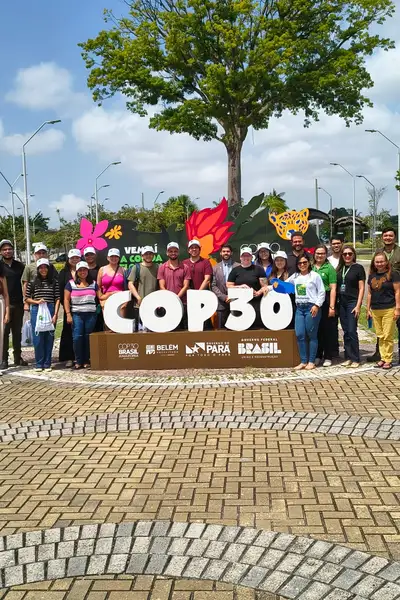
Knowledge Multipliers - The manager of the Administrative Region of Belém, Júlio Meyer, emphasized that the arrival of volunteers represents a valuable reinforcement for the Park, which is among the most visited conservation units in Brazil and plays an essential role in climate regulation and water supply for the Metropolitan Region of Belém. "Each volunteer will be a multiplier of knowledge and care. They not only contribute to management but also help create a culture of belonging and socio-environmental responsibility among visitors," Meyer stated.
The first phase of the program will run from September 2025 to September 2026, with activities organized in the morning and afternoon shifts, from Monday to Friday, according to the availability of participants. At the end of the period, volunteers will receive a certificate issued by Ideflor-Bio, formalizing the experience as part of their academic and professional trajectory, in addition to reinforcing the role of social engagement in the preservation of the Amazonian natural heritage.


